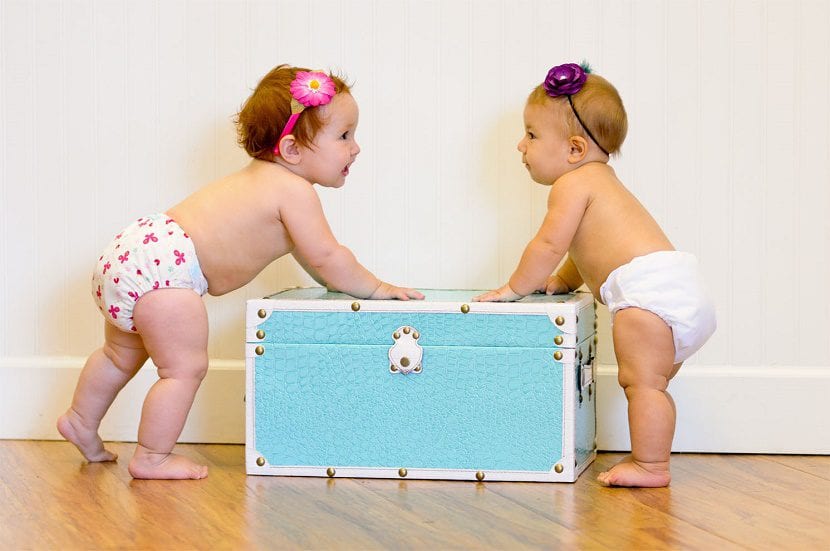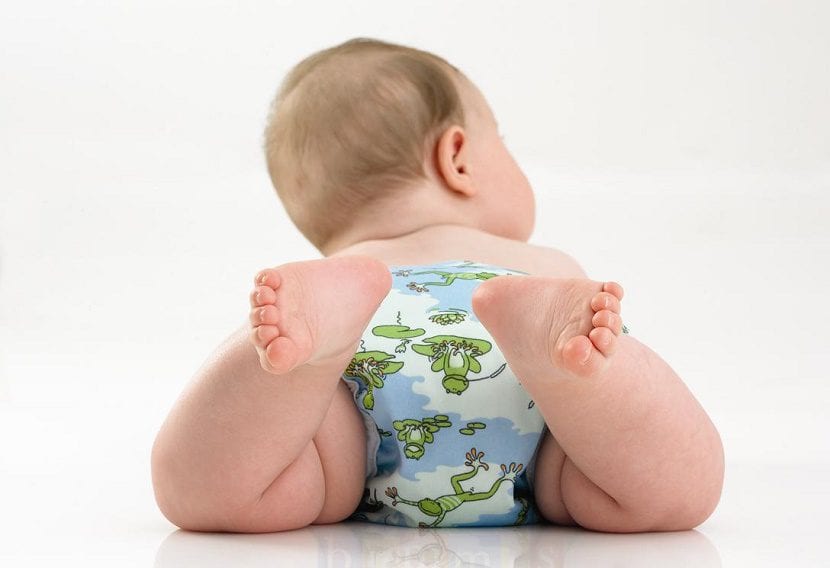
While a woman is pregnant she may have some doubts about what to buy for her baby, what can be better, or what can save more money in the long run. One of these decisions that all parents should think about is whether they will use cloth diapers or disposable diapers for the baby as soon as it arrives in the world. It is a very personal decision that must be thought very well in order to choose it according to the family's lifestyle.
But in order to decide whether to use cloth or disposable diapers, first you must know what each one consists of, what is better for yourself or for the baby and with which of the two you can feel more comfortable as a mother while you change your child's diaper (which will be a few times).
Next I want to talk to you about the pros and cons you can find in each of the diapers so that in this way you can have all the necessary information and feel able to choose the diaper that best suits your lifestyle and current thoughts.
Cloth diapers
Maybe when you think of cloth diapers you start to think of those cloth or rag diapers that mothers used half a century ago because they had no option to use disposable diapers, basically because they did not exist. It is true that those rags or cloth diapers if used now would be quite obsolete, but the reality is that today's cloth diapers have nothing to do with those diapers of decades ago.
There's a lot of science behind today's cloth diapers And the current designs are equipped with top quality materials (which will last you a long time in good condition if the care is optimal) and which also have very beautiful colorful designs that you will love.

Cloth Diapers Pros
- You can find them in cotton, terry cloth or flannel, good quality materials and ideal for taking care of a baby's delicate bottom.
- They can have fabric linings, be folded or be all in one (diaper and cover that can be separated for better washing).
- You will save money since although you can spend about 100 euros upfront to buy cloth diapers, it has nothing to do with the almost two thousand euros that you can spend on disposable diapers (money spent for the same amount of time).
- Using a cloth diaper is more natural than a disposable diaper.
- Although it does not absorb as much as a disposable diaper, you will need to change your baby's diaper more often so that the skin on the bottom will be in good condition, without so much irritation.
- As the baby matures, he will find that he is wet sooner and it will be easier to transition from the diaper to the toilet.
- You will be taking care of the environment because cloth diapers do not have to be thrown away for each use: you will save on garbage, on pollution and you will not need so many resources for diapers.
Cons of cloth diapers
- Until your child gets used to it, diapers can be a bit uncomfortable.
- If you don't have an all-in-one cloth diaper, it can be more difficult to change.
- You will spend more water and soap to wash the diapers (but it will still be cheaper for you).
- When you go out with your children and your baby poops, you will have to carry the poopy diaper with you until you wash it at home, which can smell quite bad.

Disposable diapers
Large companies advertise on television the good quality of their disposable diapers and how well they take care of your baby's bottom. Many mothers for convenience prefer to use disposable diapers, especially those mothers who do not have much time to entertain themselves by washing cloth diapers over and over again.
Are you one of the mothers or fathers who prefer to have disposable diapers always at hand before thinking about using cloth ones? Let's look at some of their pros and cons so you can discover if they really are the best option for you.
Pros of disposable diapers
- They are comfortable and easy to change, they have adhesive strips that stay well attached to the front.
- They can be purchased the exact size based on the weight and age of the baby.
- Traveling is easier because you will only have to throw the dirty diapers into a container without having to take them back home.
- You will change less diapers if you buy those that are very absorbent since they have an internal lining that will prevent the baby's bottom from being in contact with the skin.
Cons of disposable diapers
- Although there are no conclusive studies, the chemicals used to make the diaper can cause damage to the baby's skin and even have allergic reactions to this type of diaper.
- You will be polluting our planet. Disposable diapers represent 3 million tons of waste in landfills per year and do not decompose.
- Children being comfortable with diapers may feel less the need to leave them so the transition from diaper to toilet may be too long.

Once we have reached this point, you already have enough information so that you are able to decide what type of diapers are best or most suitable for your baby. You should value not only each point that I comment on in this article, but also your personal values.
It is necessary that you be aware of whether you prefer to take care of our environment more or less in exchange for your comfort, if it is worth making a larger investment first to save in the long term ... These are decisions that you must make so that later, you do not regret the decision you have made, although if you start with one type of diaper you will always be in time to try the other. Do you already know what type of diaper you prefer for your baby? Have you ever used them and do you know which one you like the most?